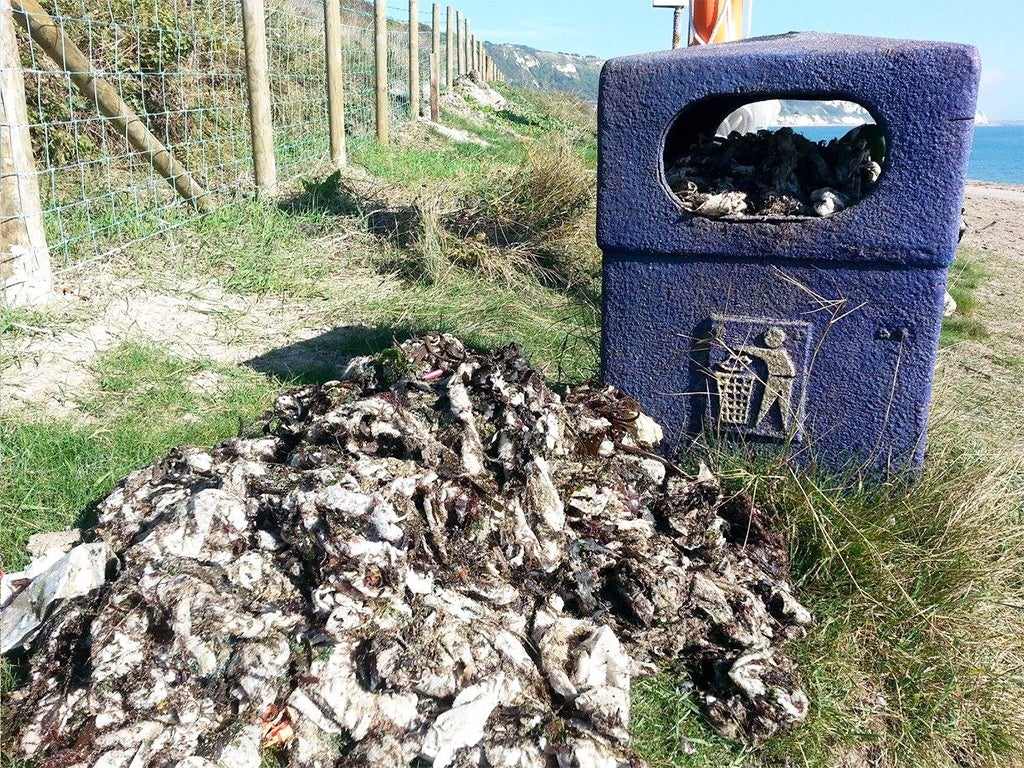I feel guilty using wet wipes... but not very
How people changed babies' nappies before wet wipes I dread to think

Your support helps us to tell the story
From reproductive rights to climate change to Big Tech, The Independent is on the ground when the story is developing. Whether it's investigating the financials of Elon Musk's pro-Trump PAC or producing our latest documentary, 'The A Word', which shines a light on the American women fighting for reproductive rights, we know how important it is to parse out the facts from the messaging.
At such a critical moment in US history, we need reporters on the ground. Your donation allows us to keep sending journalists to speak to both sides of the story.
The Independent is trusted by Americans across the entire political spectrum. And unlike many other quality news outlets, we choose not to lock Americans out of our reporting and analysis with paywalls. We believe quality journalism should be available to everyone, paid for by those who can afford it.
Your support makes all the difference.It was with a guilty feeling that I read of the harm caused by wet wipes. The Marine Conservation Society reports a 50 per cent increase over the past year in the number found on our beaches; and wet wipes are “causing havoc in the sewers of Kent”, according to Southern Water.
I am a wet-wipe user. But I would seek mitigation by saying I only got into them because I changed my sons’ nappies so often. How people “changed” babies before wet wipes I dread to think, but I doubt I would have involved myself in the process very much.
Wet wipes, I’m afraid, displace other, more environmentally friendly, but less convenient products. One of these is toilet paper. This use is not usually proclaimed on the packets, but phrases such as “leaving you feeling clean and fresh” point the way.
On the Continent, they have bidets. In the Middle East, toilets are often equipped with a kind of hose. (In the gents’ at Dubai airport, I discovered one of these, whereupon what might have been a scene from a Mr Bean film ensued.) In Britain, we have toilet paper, or – very often in public lavatories – not. So you can see where the wet wipe comes in.
They also displace kitchen cloths. A scientist once told me that the typical kitchen cloth contains 30 trillion colonies of bacteria. His point was that in order to clean with a kitchen cloth, you have to first clean the kitchen cloth. He himself soaked his kitchen cloths in bleach twice a week, thereby probably reducing the number of bacteria colonies to a more reasonable figure of, say, 10 trillion. But I never use bleach. The warnings on the labels are too severe, the basic message seeming to be “Do not, on any account, use this product.”
Wet wipes also displace spit. When my mother wanted to clean my face, she would spit (genteelly, of course) on the corner of her handkerchief, which she would then apply to my chocolate-y lips. I counted it an honour to be so dealt with, but saliva is very out of fashion today. (Over the past four years, every London borough has acquired the power to fine people for spitting in public.)
In addition, wet wipes displace that increasingly rare conjunction of a cake of soap and a sink. A man who worked for a train company once told me that cakes of soap were discontinued in train WCs because people stole them. So liquid soap was introduced. But another man who worked for a train company told me that people steal liquid soap as well, by decanting it into bottles. That must be why the liquid soap canisters are always empty… or they contain just enough soap to make my hands greasy, whereupon I grope for the sensor that supposedly releases a dribble of water, only to discover a depressing aridity.
It’s a shame that wet wipes are undermining civilisation in the long term, because they’re certainly promoting it in the short term.
Join our commenting forum
Join thought-provoking conversations, follow other Independent readers and see their replies
Comments